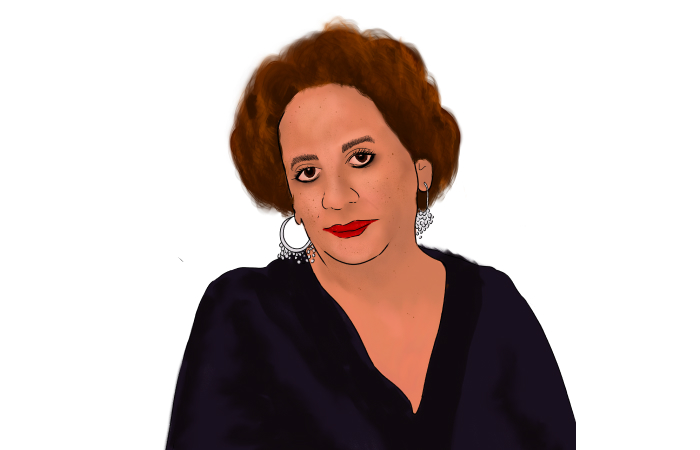A judgement by the Supreme Court of Kenya allowing members of the LGBTQ+ community in Kenya to form an association has kicked up a storm, with leaders like National Assembly Speaker Moses Wetangula condemning the judgement because it did not uphold “public morality”, and Attorney-General Justin Muturi vowing to challenge the judgement on the basis that it goes against the country’s religious and cultural norms. Some members of the clergy have also criticised the judgement, saying it is un-Christian. This despite the fact that none other than Pope Francis, the head of the Catholic Church whose faith is not in doubt, publicly declared recently that God loves all his children, including gays, and that homosexuality should not be condemned or criminalised.
Further, it is important to emphasise that the Supreme Court did not legalise homosexuality, which is still considered a crime in Kenya; it merely permitted the LGBTQ+ community to have the right to register an organisation and to assemble, so why all the hullabaloo? The Supreme Court was of the view that limiting the right to associate purely on the basis of the sexual orientation of the applicant was unconstitutional. Its judgement stated: “Despite gayism being illegal, they have a right to associate.” It was a progressive ruling that showed that the court is still committed to upholding the Constitution and the rights enshrined therein.
The judgement, naturally, as such things do in Kenya, led to a lot of chatter on social media, mostly targeted at the LGBTQ+ community, which is quite surprising because unlike Uganda and other African countries where there have been vicious campaigns targeted against homosexuals, in Kenya we have not been so vocal against the gay community nor have there been there frequent violent attacks on gays. I would even go as far as saying that generally, we’d had a live-and-let-live attitude towards gays. I believe the majority of Kenyans are more worried about how they will find money to pay school fees or rent rather than whether a fellow Kenyan is gay. This is why rumours of prominent Kenyans being gay have not affected these people’s careers or businesses.
But with a very conservative government in power (that openly propagates a conservative right-wing Christian agenda), such attacks might become more frequent. We know that President William Ruto has the backing of the clergy. This signals that he will have no qualms about using the Church to push his agenda. This is why Christian prayers have become an integral part of his meet-the-people tours and State House meetings. As Father Gabriel Dolan, a priest who has lived in Kenya for more than 40 years commented in a recent column, both the president and his deputy “see no difficulty in using public resources to organise Christian prayers in a secular state”.
Father Dolan believes that Christianity is being hijacked by both the state and the ruling elite in Kenya. In his book, Undaunted: Stories of Freedom in a Shackled Society, he writes: “For the last ten years, politicians have been donating millions of shillings to Catholic churches and institutions in Kenya. Most of these ‘generous’ men – always men – have never explained the source of their massive wealth yet they have been linked to mega corruption scandals and land grabbing as well as the looting of the public coffers for decades. As a result, priests have become “commodities for hire”.
We know that successive governments in Kenya have relied on the Church for support. But we know very little about allegations of how Kenyan and other African governments are being sponsored by conservative Christian groups in the United States which are pouring millions of dollars into poor African countries to promote a very regressive anti-gay and anti-feminist agenda. The Netflix series, The Family, sheds some light on these groups, particularly a very secretive one known as The Family, which wields enormous influence in Washington D.C. and has global ambitions to rope in as many foreign leaders into its agenda as it can. Africa is of particular interest to this group, which is known to sponsor National Prayer Breakfasts (like the ones we have been having in Kenya) where its representatives seek to influence national leaders.
An investigation by OpenDemocracy showed that 20 conservative Christian groups based in America have spent more than $50 million in Africa since 2007 to fight against LGBTQ+ rights and access to abortion, contraceptives and sex education. These groups have been very active in countries like Uganda (which could explain the extreme violence targeted at gays in that country). Part of the findings shows that the Fellowship Foundation, a secretive religious group associated with the anti-gay Ugandan minister David Bahati, spent $20 million in Uganda alone between 2008 and 2018. Such groups seek not only to gain converts but to influence laws, policies and public opinion against homosexuality and sexual and reproductive rights.
It is therefore ironic and deeply unfortunate that at a time when Kenya is facing prolonged drought and hunger, there is so much negative attention being paid to the LGBTQ community, which has nothing to do with the challenges the country and its citizens are currently facing. It wouldn’t be surprising if it later emerges that this is all a smokescreen aimed at distracting Kenyans from the burning issues affecting their lives and livelihoods directly, like the rising cost of living.

